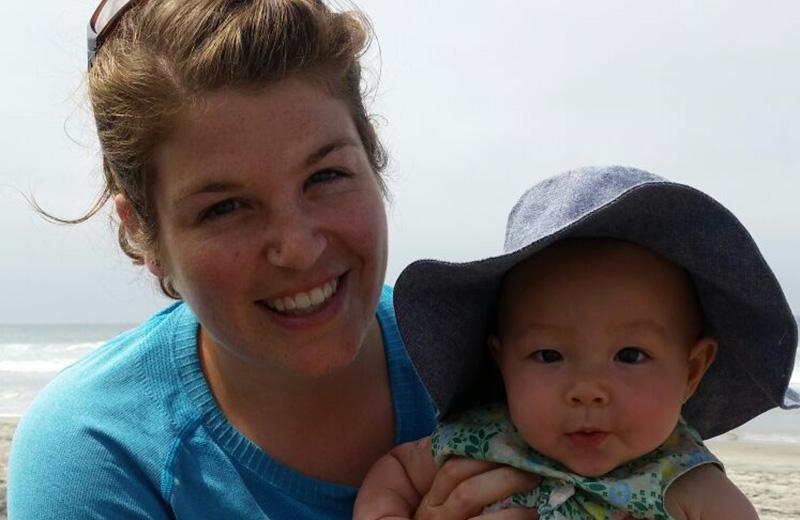The theme of World Breastfeeding Week 2021 is Protect Breastfeeding: A Shared Responsibility. This theme highlights the links between breastfeeding and the optimal health and wellbeing of women, children, families, and nations.
I recently had the chance to talk to one special health care provider in Prince George whose work reflects this theme: Lauren Irving, nurse practitioner (NP). Lauren was drawn to a career as an NP because she loves to help others and promote health across all ages. Her main focus? Preventive care that helps people stay healthy across the lifespan. This includes her efforts to promote, protect, and support breastfeeding among her patients.
Feeding support as a standard part of perinatal care
When she supports pregnant patients, Lauren brings up infant feeding during early prenatal visits. She shares information about the importance of breastfeeding and helps patients explore their feeding options.
After a birth, Lauren offers home visits. These are a chance to check in with moms and babies and to ask how feeding is going. For example, for parents who breastfeed, she can help support a good latch (the connection between the baby's mouth and the breast), and provide tips and resources that might be useful.
Helping parents meet their feeding goals
Lauren’s passion for helping parents along their feeding journeys was clear.
“I have seen parents who become confident and proud of themselves for doing something that may have initially been a struggle, or where they didn’t know if it would be possible,” she says.
I could also sense the joy it brings her to see some of same these parents breastfeed their children into the toddler years.
Lauren’s tips for breastfeeding helpers
For those who want to take on a more active role to protect, promote, and support breastfeeding, Lauren has a few tips:
- Start conversations about infant feeding early
- Offer to watch a feed
- Check in with parents often
She also likes this free online learning module: Latching On: How Family Physicians Can Support Breastfeeding Patients (UBC CPD)














Comments